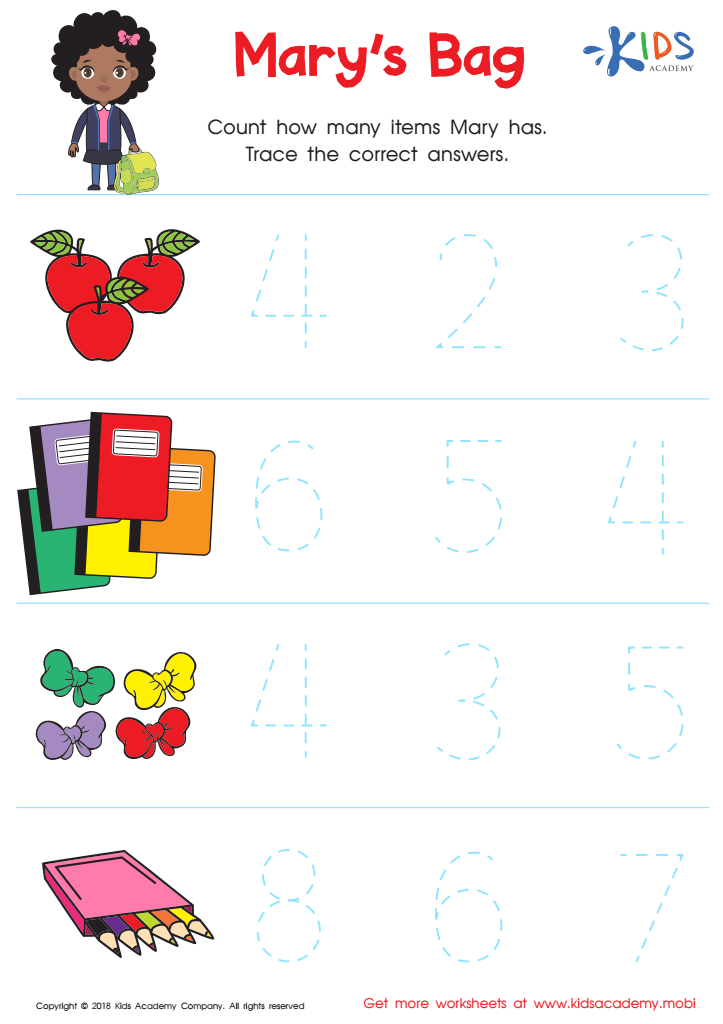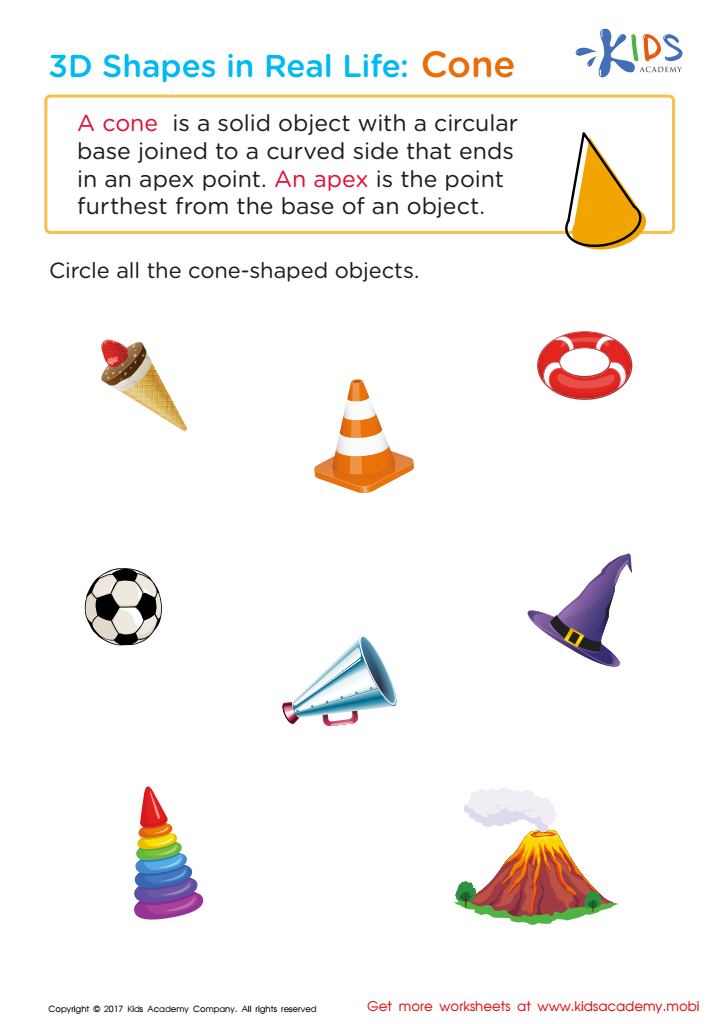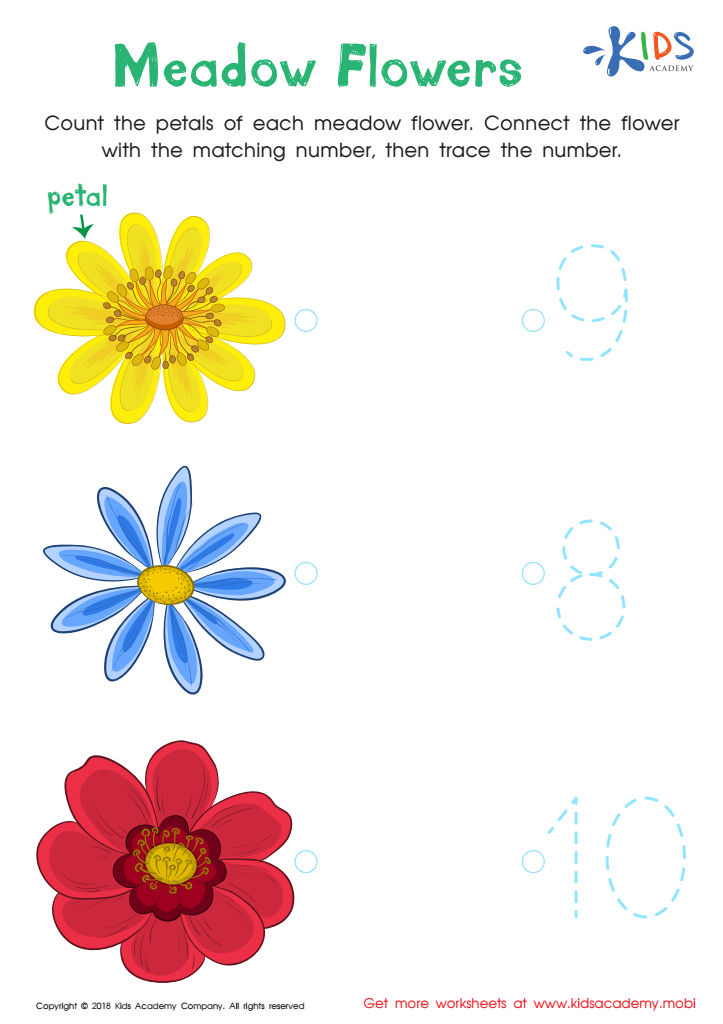Handwriting Skills Normal Math Worksheets for Ages 5-6
3 filtered results
-
From - To
Enhance your child's handwriting and math abilities with our engaging Handwriting Skills Normal Math Worksheets designed for ages 5-6. These worksheets provide a fun way to develop fine motor skills while integrating essential math concepts. Each sheet encourages young learners to practice writing numbers and letters, all while solving simple mathematical problems that foster critical thinking. Ideal for home or classroom use, these activities support early literacy and numeracy in a seamless manner. By using our carefully crafted resources, children can gain confidence in their skills, ensuring a solid foundation for future learning. Download and watch your little ones thrive!


Kindergarten Number Tracing: Mary's Bag Worksheet


Shapes in Real Life: Cone Worksheet


Kindergarten Number Tracing: Medow Flowers Worksheet
Handwriting skills and foundational math are essential for children aged 5-6, as they form the backbone of successful academic and social development. These early years are crucial for cognitive growth, and proficiency in handwriting fosters confidence and self-expression. When children learn to write legibly, they not only improve their ability to communicate but also enhance their fine motor skills and hand-eye coordination—skills that are vital for overall development.
Additionally, understanding basic math concepts lays the groundwork for critical thinking and problem-solving abilities. At this age, children begin to grasp numbers, counting, and simple operations, which serve as building blocks for future mathematical learning. Early exposure to these skills can prevent difficulties later on, reducing anxiety towards subjects like math, thereby ensuring a smoother transition into more complex concepts.
Parents and teachers play a vital role in nurturing these skills by providing engaging, age-appropriate activities that promote both handwriting and math. By creating a supportive learning environment, they help children develop essential abilities, ultimately leading to greater academic success and a lifelong love for learning. Ignoring these foundational skills can hinder a child's confidence and progress, hence the importance of early intervention and support cannot be overstated.
 Assign to My Students
Assign to My Students




















